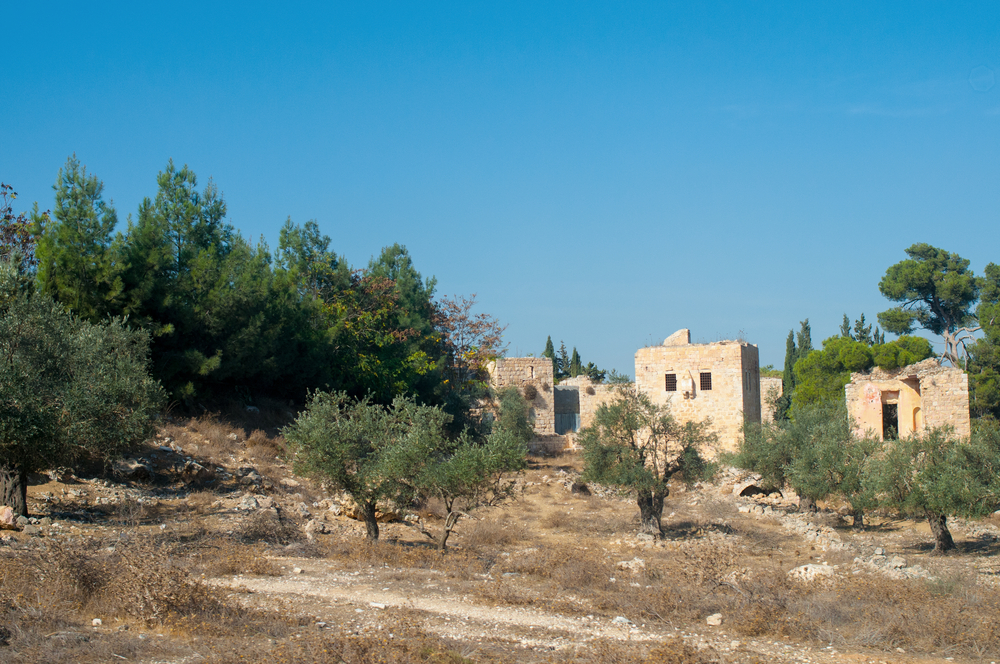
And it came to pass, when they were come to Bethlehem, that all the city was moved about them, and they said, Is this Naomi? (Ruth 1:19b)
Naomi and Ruth completed walking the journey of sixty or so miles from Moab to Bethlehem. Their return to this small town must have been big news. The entire city turned out to greet them. Perhaps Elimelech and his family had held a place of prominence in the town before moving away.
Whatever the reason, the whole town turned up to welcome them. Even though it had been ten years, the people still remembered Naomi. They remembered well enough to know that something had drastically changed in her. Naomi’s reply to their question clearly showed the state of her heart:
And she said unto them, Call me not Naomi, call me Mara: for the Almighty hath dealt very bitterly with me. (1:20)
The name Naomi means “pleasant”; the name Mara means “bitter.” Naomi did not try to hide her loss or how she felt toward God about it:
I went out full, and the LORD hath brought me home again empty: why then call ye me Naomi, seeing the LORD hath testified against me, and the Almighty hath afflicted me? (1:21)
Clearly, Naomi was in bitterness of spirit. She had suffered a great loss and wanted everyone to know it.
So Naomi returned, and Ruth the Moabitess, her daughter in law, with her, which returned out of the country of Moab: and they came to Bethlehem in the beginning of barley harvest. (1:22)
Some might say that Naomi and Ruth just happened to return to Bethlehem at the beginning of the barley harvest. However, we know that this was part of God’s plan to provide for Naomi and Ruth in a spectacular way.
And Naomi had a kinsman of her husband’s, a mighty man of wealth, of the family of Elimelech; and his name was Boaz. And Ruth the Moabitess said unto Naomi, Let me now go to the field, and glean ears of corn after him in whose sight I shall find grace. And she said unto her, Go, my daughter. (2:1-2)
During the time of the judges, Israel was self-governing. God gave them the law, and the people chose judges from among themselves to uphold the law. One of God’s laws recorded in Leviticus 23:22 dealt with helping the poor. It states:
And when ye reap the harvest of your land, thou shalt not make clean riddance of the corners of thy field when thou reapest, neither shalt thou gather any gleaning of thy harvest: thou shalt leave them unto the poor, and to the stranger: I am the LORD your God.
Perhaps Ruth knew about this law that allowed the poor to glean in the wealthy people’s fields. Ruth showed Naomi respect by asking her permission to go and glean in the fields. Naomi gave her consent, and Ruth went to work.
And she went, and came, and gleaned in the field after the reapers: and her hap was to light on a part of the field belonging unto Boaz, who was of the kindred of Elimelech. (2:3)
It is interesting to note that God chose to use the word hap in the verse above. Hap means “an unforeseen event; accident; chance.” We know that with God there are no accidents or unforeseen events. Perhaps God was simply trying to inject some humor into this account. It was certainly no accident that Ruth ended up gleaning from Boaz’s fields.
We are now introduced to Boaz. The Bible tells us two main things about him right off: he was very wealthy, and he was related to Elimelech. We also learn that Boaz was an attentive businessman and rather observant in general:
And, behold, Boaz came from Bethlehem, and said unto the reapers, The LORD be with you. And they answered him, The LORD bless thee. Then said Boaz unto his servant that was set over the reapers, Whose damsel is this? (2:4-5)
Boaz came to check on his workers and his fields, but he also noticed Ruth and inquired about her.
And the servant that was set over the reapers answered and said, It is the Moabitish damsel that came back with Naomi out of the country of Moab: And she said, I pray you, let me glean and gather after the reapers among the sheaves: so she came, and hath continued even from the morning until now, that she tarried a little in the house. (2:6-7)
The Bible doesn’t tell us why Boaz was interested in Ruth, surely there were many poor people there gleaning among the reapers. Yet Ruth stood out to Boaz. Maybe he had heard about her from others in town and wanted more information. However, he did not question her right to be there to glean in his field.
The servant informed Boaz about Ruth and seemed to be impressed with her work ethic enough to make mention of that as well. Boaz would have recognized that Naomi was a relative and that Ruth was obviously gleaning to provide for the two of them. He developed a plan in his mind to ensure they would be well taken care of.
